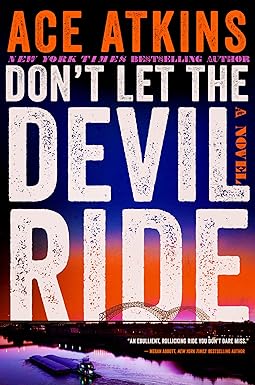Aaron Sibarium would like to remedy that:
NEW: A gender studies professor who says "white empiricism" undermines Einstein’s theory of relativity sits on a top advisory panel at the Energy Department.
— Aaron Sibarium (@aaronsibarium) March 17, 2025
Meet Chanda Prescod-Weinstein, who claims string theory "failed to succeed" because the field has too many white men.🧵 pic.twitter.com/i1VGTWNUyw
You can click over for Aaron's twitter-thread about CPW, or you can read his Washington Free Beacon article here.
And, for the record, CPW's point about "white empiricism" was meant to show that "white empiricism" was bad, since it contradicted Einstein's thoughts about "general covariance". A silly point to make, but CPW was not implying that Einstein's theories were actually undermined.
I somehow missed that CPW got appointed to the High Energy Physics Advisory Panel. Her employer (and my ex-employer), the University Near Here, usually trumpets such things, but I think they didn't in this case. I can't help but wonder if UNH would prefer not to draw attention to their relationship.
Aaron, by the way, rattles off a number of CPW's past rants and crusades. And comes close to urging the Trump Administration to kick her off the advisory panel, due to her excessive wokeness, and Hamas-cheerleading, I disagree with that remedy, just as I disagreed with the people (NH state senators!) who urged her speech to be "condemned and stopped" by UNH back in 2023.
Also of note:
-
Fun stuff from Robert Graboyes. He has a guessing game going: I See Dead People (part 1 of 2)
I’ve invited 30 mystery guests from across many centuries to attend a 21st century costume party. Each image was produced in seconds by AI (Grok)—though in some cases, it took several tweaks of the prompt to get the right image. I’ll wait till later in the week to reveal their identities, leaving you time to ponder who they might be. You can post your guesses in the comments section,
I've made a couple guesses, one a long shot, another a real long shot. If this sort of thing appeals to you, check it out.
-
Counterpoint on the Voice of America muzzling. Jesse Walker is not a fan: The U.S. Agency for Global Media should shut its Cold War relics down.
The U.S. Agency for Global Media—the bureaucracy that runs the Voice of America, Radio Free Europe/Radio Liberty, and Radio y Televisión Martí, among other operations—might be about to die. On Friday, President Donald Trump issued an order to shut it down "to the maximum extent consistent with applicable law." In a follow-up statement Saturday, the White House derided the Voice of America as "radical propaganda" and listed several stories on the network that the administration found objectionable.
Trump has been complaining about the Voice of America since his first term, and last month Envoy for Special Missions Richard Grenell declared it and Radio Free Europe a "relic of the past." But most of the administration's criticism has been focused on these outlets' content, not their existence, and by some reports the agency has reacted by cracking down on material critical of the president. So it was fair to fear that we were watching a version of the playbook the GOP keeps using on domestic public broadcasters: You threaten to defund them, and then they protect themselves by firing some figures who conservatives don't like and/or hiring some that they do. Maybe the Voice of America isn't really on the chopping block, you might have thought. Maybe it's just getting a MAGA makeover.
I'm not totally convinced by Jesse's argument, but at least I'm less convinced that Trump is dancing on strings held by Puppetmaster Putin.
-
The answer may surprise you! Are COVID-19 vaccines safe and effective? Ronald Bailey looks at the evidence. As far as effectiveness goes:
COVID-19 vaccines and boosters have proved to be highly effective in preventing severe cases, hospitalizations, and deaths. Recent research in The Lancet calculates that COVID-19 vaccinations between December 2020 and March 2023 saved approximately 1.6 million lives in Europe. A 2024 Brookings Institution report suggests "the delivery of vaccines to a substantial majority of the American population by mid-2021 saved close to 800,000 American lives relative to what would have occurred had vaccines not been developed." In 2023, a team of researchers associated with Harvard University and the Centers for Disease Control and Prevention distressingly estimated that "at least 232,000 deaths" in the U.S. "could have been prevented among unvaccinated adults during the 15 months [May 30, 2021 to September 3, 2022] had they been vaccinated with at least a primary series."
Spoiler: although there's no binary safe/unsafe, Ron concludes "the benefits of COVID-19 vaccines considerably outweigh their risks."
If none of that surprises you, good.
-
Be not afraid. Jason Furman holds forth, in an NBER paper, on Regulating AI: Six Principles and Their Consequences. If you're interested, read the whole thing, but I especially liked Principle #2:
Compare AI with humans, not to the Almighty. Autonomous cars crash—but how do they compare with human drivers? AI may show biases, but how do these stack up against human prejudices (Kleinberg et al. 2017)? In fact, maximizing social welfare should not require AI to perform at parity with humans given the dynamic consideration that many AI technologies, like self driving cars, offers significant convenience and has greater potential for improvement over time than humans have. Recent research suggests that autonomous driving systems have a significantly lower crash rate than human drivers (Kusano et al. 2024). AI is learning much faster than humans are and the future gains this learning will generate belong on the benefit side of the ledger.
I'd love to try an AI-driven car. I'd put my seatbelt on, though.
| Recently on the book blog: |


![[The Blogger and His Dog]](/ps/images/me_with_barney.jpg)



